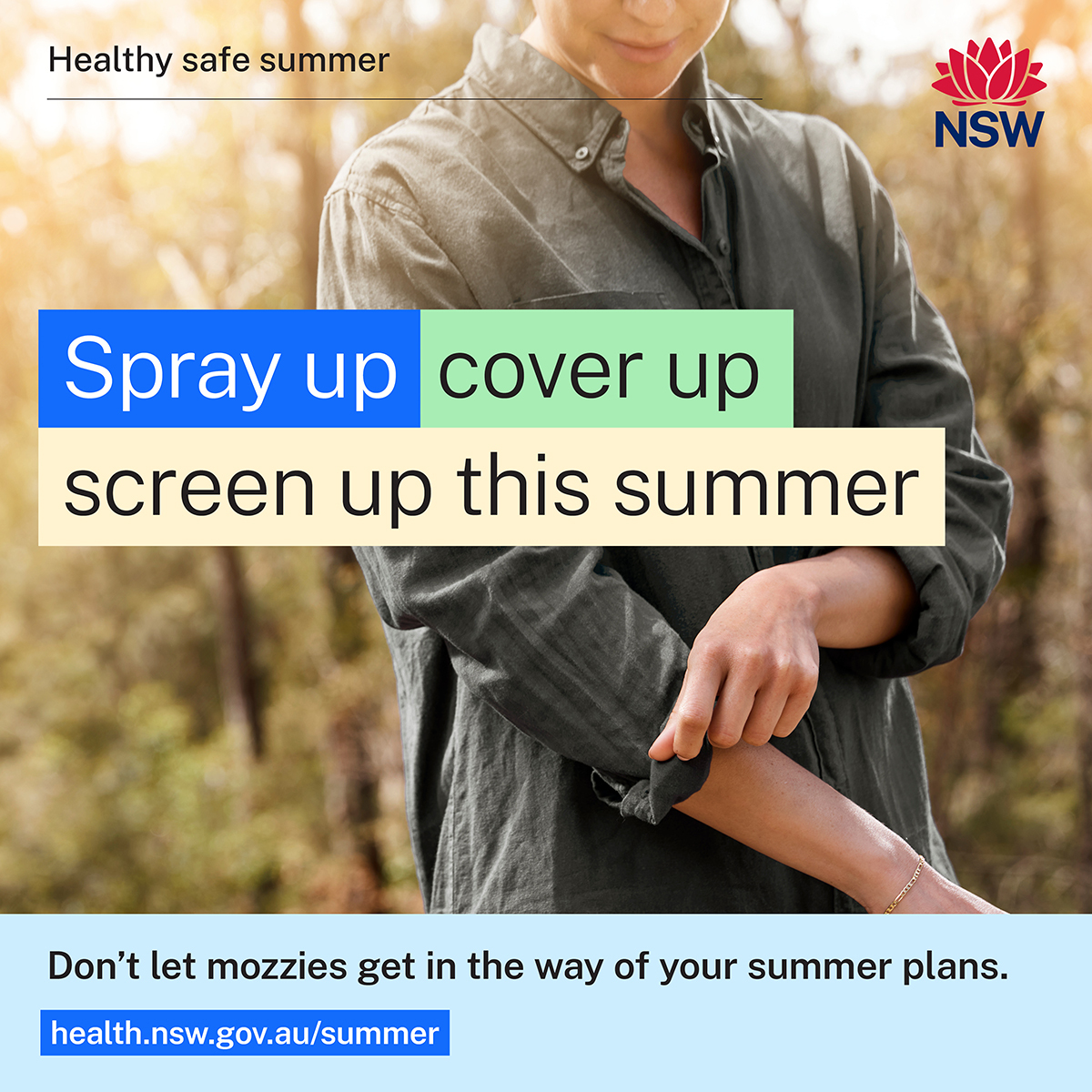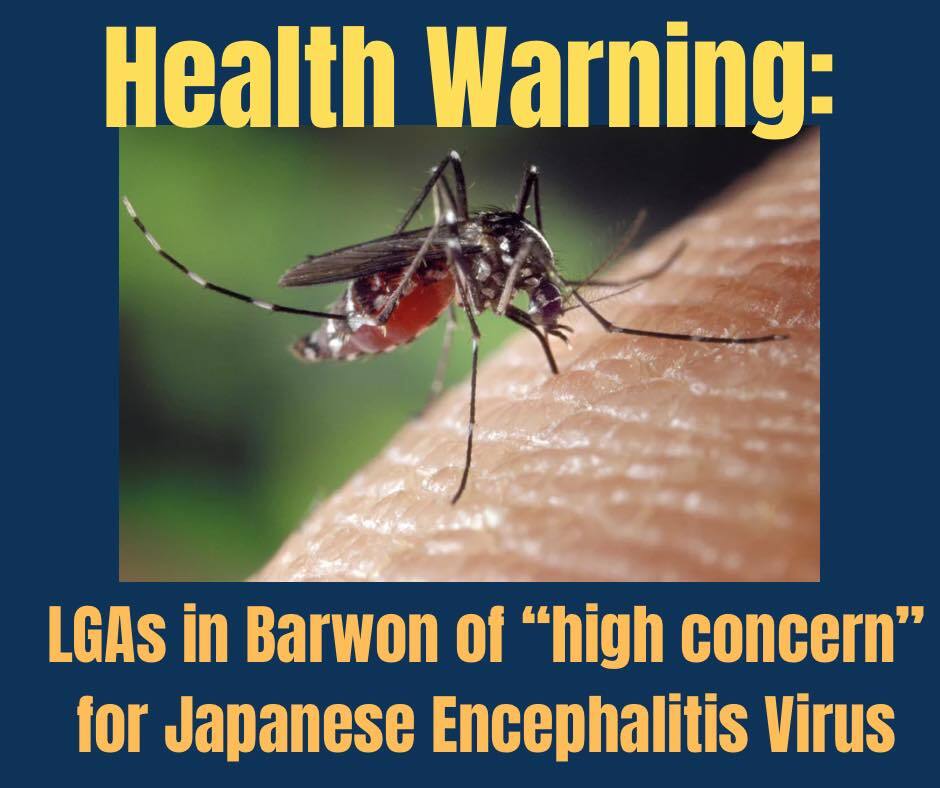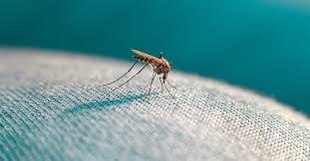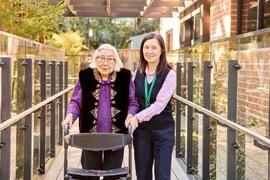MP issues warning for encephalitis in the region
Angie White
08 January 2025, 1:40 AM
 Image NSW Government
Image NSW GovernmentAuthorities are reinforcing earlier health warnings around the escalated risks to regional residents from Japanese and Murray Valley Encephalitis
Independent Member for Barwon Roy Butler has advised western area residents to take care as the risk of Japanese encephalitis (JE) and Murray Valley encephalitis (MVE) has increased along with the warmer weather.
With the state experiencing heavy rain resulting in water lying around which, combined with warmer temperatures, provides ideal conditions for mosquito breeding.
Following a statewide NSW health issue warning, Mr Butler took to social media to warn residents to take precautions.
“Due to warmer, wet weather across the state NSW health has issued warnings for 55 local government areas about exposure to mosquitoes and the increased risk of JE or Japanese encephalitis virus or the Murray Valley encephalitis virus (MVE),” said Mr Butler.

“The areas of concern in Barwon include Bourke, Brewarrina, Broken Hill, Central Darling, Cobar, Coonamble, Gilgandra, Lachlan, Narrabri, Walgett, Warren, Warrumbungle and the Unincorporated Area.
“People living, working or visiting these areas are warned to take precautions against mosquitoes such as applying repellent, limiting time outdoors at dawn and dusk when mozzies are most active, wearing long sleeves and long-legged pants and protecting the home with fly screens."
Symptoms include fever, headache, nausea, vomiting, loss of appetite and although in some cases there will be no symptoms for others it could lead to lifelong health issues including paralysis.

Member for Barwon Roy Butler - Image Roy Butler Office
Currently a vaccine exists for JE but not for MVE, and NSW Health advises taking precautions against being bitten by mosquitoes.
Their advice includes:
- Covering up while outside (wear loose, long-sleeved, light-coloured clothing and covered footwear and socks), particularly at dawn and dusk when mosquitoes are most active.
- Applying mosquito repellent evenly to all areas of exposed skin. The most effective repellents contain picaridin, DEET or oil of lemon eucalyptus. Read the instructions to find out how often you should reapply repellent. Always apply sunscreen first and then apply repellent.
- Limiting outdoor activity where possible if there are lots of mosquitoes aboout.
Health authorities do not recommend mosquito wristbands or patches, citing lack of evidence that these provide good protection against mosquito bites.
They also advise that natural or homemade repellents provide limited protection.

Image courtesy Healthline
Mosquitoes will lay their eggs on or in still and stagnant water.
They lay more than 300 eggs at once – that's a lot of extra mosquitoes. This means there is in an increased risk for people to be infected with mosquito-borne diseases, like Japanese encephalitis.
For more details here.



